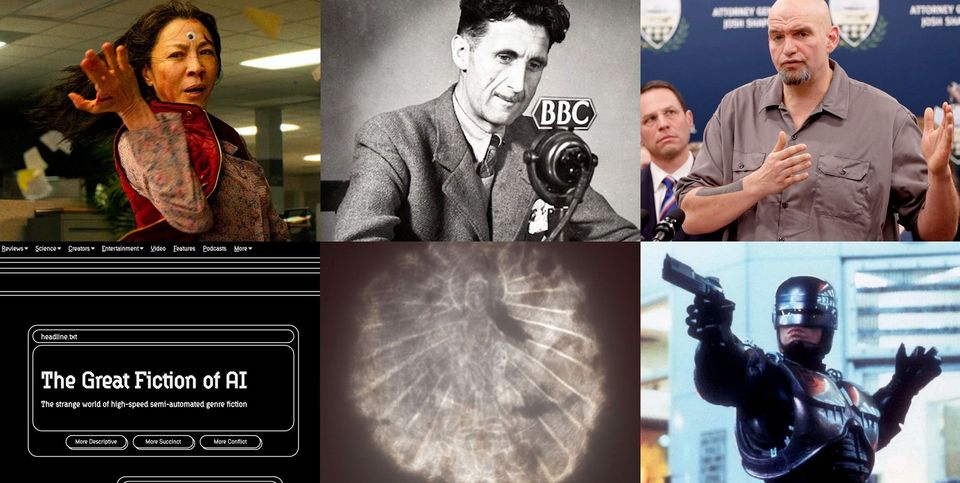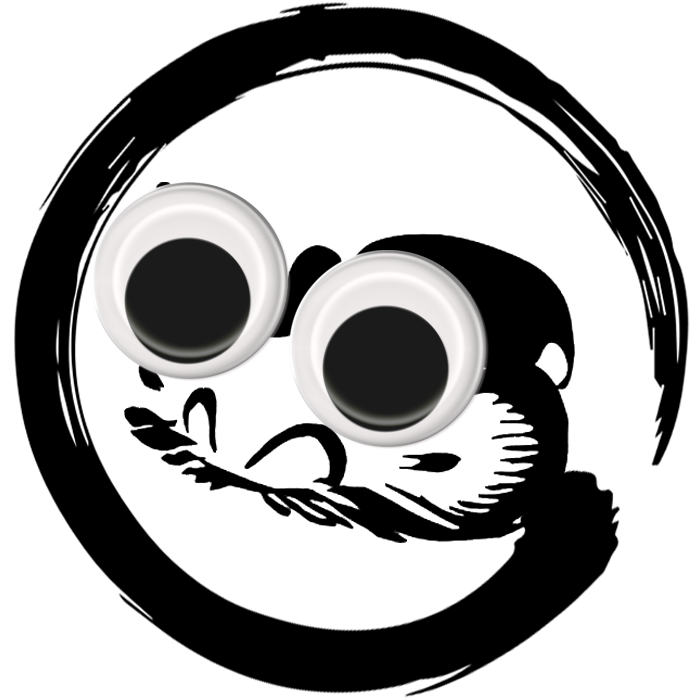You Should Read - July 22

Just One Thing
From the minute I saw the trailer for Everything Everywhere All At Once, I said it was one movie I absolutely had to see in a theater. I miss the complete immersion of the theater experience. But, it came and went and apparently I was too distracted or lethargic to go out and see it. My wife, Kim, got tired of waiting and watched it on her phone on a recent flight. Finally, last weekend, we sat down to watch it together.
Mind. Blown.
Movies like this are one-a-decade rarities. Groundhog Day. The Matrix. Children of Men. Kim and I spent more than an hour discussing the film after the credits rolled. And then I spent the rest of the week consuming all the essays and commentary I could find. True to the title, there is just so much in the film to dig into, something almost everyone can identify with. All of this is delivered in a story and characters that are simultaneously on-trend yet wholly surprising and unexpected.
And, it's visually rapturous. Based on the lighting, the editing, and the visual effects, I assumed it had an enormous budget. Nope. $25M and a five-person effects team. What you see onscreen is the power of creative constraints. Comparing the film to my own day-to-day work that requires a high level of collaboration, I am astonished at just how unlikely it is that so many different voices and talents were able to create the singularly cohesive and multilayered work of art this film turned out to be.
On July 29, Everything Everywhere All At Once is returning to about 800 theaters for a limited rerelease. I'm hoping to find one near me.
Once you’ve seen the film - and only once you’ve seen the film - check out these fantastic meditations:
Salon Daniels on the ADHD Theory of Everything Everywhere All at Once, Paper Cuts, and Butts
Hanh Nguyen: “Everything Everywhere All at Once” is one of those films where I really felt seen – and it wasn’t just because it features an Asian American immigrant woman – but the concept of feeling overwhelmed really hit home for me. I’ve suspected for a while, and a lot of my friends have been encouraging me to get diagnosed for ADHD. And so watching it, I wondered, “How is this film exactly what I feel?” Was there any of that influence in the film?
Dan Kwan: That’s amazing. When we first started writing this movie, we knew we wanted to make a movie about chaos and about this overwhelming feeling that everyone’s been feeling the past six years. Or 34 years. Or all throughout history of mankind. But when we started writing, we were like, “Oh, we should probably do a little bit of research about ADHD. Maybe the main character is undiagnosed and they don’t know it.”
Daniel Scheinert: Yeah, we were like, “Maybe she’s so distractible, she can go to other universes with her brain.” But then we’re like, “That might be offensive. We should Google it.”
Kwan: So I started doing some research. And then I stayed up until like, four in the morning, just reading everything I could find about it, just crying, just realizing that, “Oh, my God, I think I have ADHD.” So this movie is the reason why I got diagnosed. I got diagnosed, I went to therapy for a year and then went to a psychiatrist. And I’m now on meds, and it’s such a beautiful, cathartic experience to realize why your life has been so hard.
The Guardian The West Misses the Point of Everything Everywhere All at Once – It Gets the Asian Psyche
Slate Did a Beloved Indie Movie Really Cause a Googly Eye Shortage?
Collected Ephemera
Galaxy Brain How to Leave an Internet That’s Always in Crisis
Jacobin John Fetterman Is the Kind of Political Communicator the Left Needs
Colossal Cincinnati Art Museum Discovers That a Rare 16th Century Mirror Reveals a Hidden Image When Illuminated
This is fascinating ancient technology. What immediately jumped to my mind is the mirror metaphor featured prominently in the poetry battle from The Platform Sutra.
Shenxiu's poem:
The body is the bodhi tree.
The mind is like a bright mirror's stand.
At all times we must strive to polish it
and must not let dust collect.
Huineng's response:
Enlightenment is not a tree,
The bright mirror has no stand;
Originally there is not one thing—
What place could there be for dust?
Book Marks George Orwell’s 1940 Review of Mein Kampf
What [Hitler] envisages, a hundred years hence, is... a horrible brainless empire in which, essentially, nothing ever happens except the training of young men for war and the endless breeding of fresh cannon-fodder.
Sound familiar? This is a description of 70 years of American empire. And Orwell deftly explains how demagogues, then and now, are able to convince people to clamor for this horrifying vision of the future instead of Fully-Automated Luxury Communism.
Commonweal Christianity’s Postliberal Critics
Club Leftist Tennis Against Pickleball
This parasitic attack on public tennis courts is an early clue that pickleball is not truly dedicated to the glory of leisure, or else its supporters would have solidarity with the leisure of tennis players. No, its entire function is to attack existing shared infrastructure, to shrink it, and accordingly shrink the radical horizon of what can be accomplished collectively.
Honestly, I can’t tell if that's serious or satire.
PRINT Ana Rice Turns Her Hardest Feelings Into Evocative Abstract Shapes
SVA's "100 Days" project is a great one. I took a swing at it myself a few years back. Didn't make it to 100, but it was a great exercise.
Far Out 35 years of RoboCop: An Unforgettable Vision of Techno-fascist America
The Verge The Great Fiction of AI The strange world of high-speed semi-automated genre fiction | Two Roads Diverged in a Tunnel, and I—I Printed Out a Semi-automated Novel | How I Learned to Stop Worrying and Love the Robot Author
I miss the early days of the Web when articles took the form of creative, purpose-built webpages like this.

